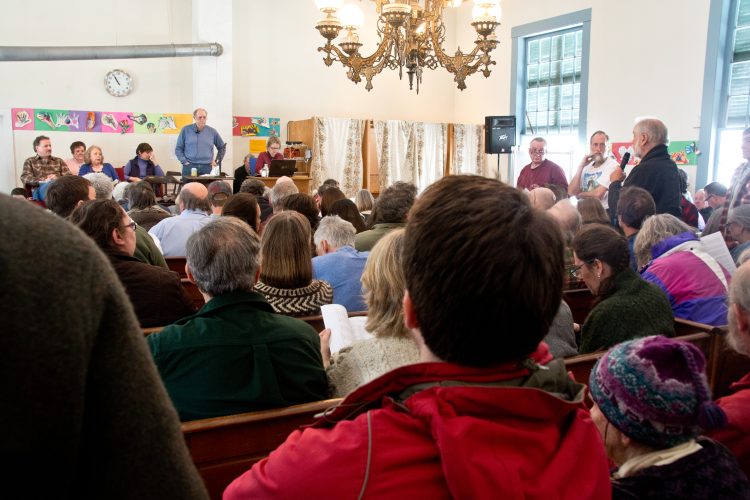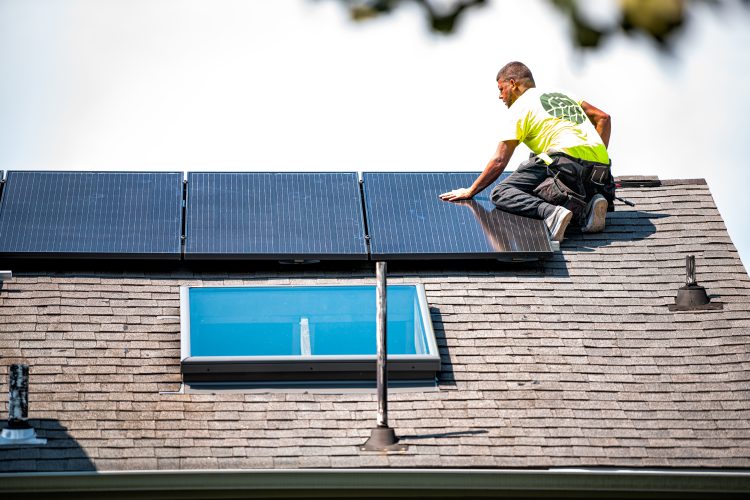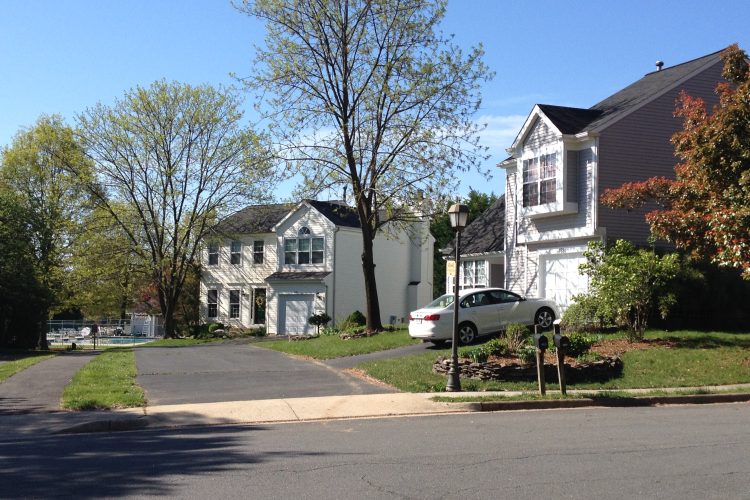July 12, 2022
Homeowner Injunction Claims Against HOAs
In property cases, many parties seek an injunction. An injunction is a court ruling directing a defendant do something specific or to refrain from doing something. Violations of an injunction order may be enforced by contempt proceedings. Injunctions contrast with other remedies such as awards money damages. Injunctions are important in condominium and HOA cases. Sometimes boards sue to force an owner to obey a restrictive covenant. Someone may be obstructing an easement. The board may be acting in a fashion that is contrary to the statutes or declaration. While a party may believe that injunctive relief is the obvious answer, obscure doctrine may hinder the use of this “extraordinary” remedy. Today’s post covers considerations for bringing or opposing homeowner injunction claims against HOAs. On May 24, 2019, I posted an article, “Injunctions in HOA cases.” I am blogging about this again today because of how important this remedy is to homeowners seeking legal solutions in HOA matters.
Virginia law usually requires, (1) irreparable harm and, (2) an inadequate remedy at law to warrant an injunction. The harm doesn’t have to threaten life, limb or entire loss of the property to be deemed “irreparable” or to be absolutely permanent. But it must be some sort of substantial threat or actual, continuing infringement of a legal right. “Inadequate remedy at law” means that the problem cannot be sufficiently resolved by means of an award of possession, money damages, or some sort of appropriate legal process defined by law.
For enforcement of property rights, the Supreme Court of Virginia recognizes that an injunction is an appropriate remedy. The violation of a real property interest is deemed “irreparable”, and the owner ought to be protected in the enjoyment of his property. Yet, the other party may avoid the imposition of an injunction if it can demonstrate that it would create a hardship or injustice that is out of proportion to the relief sought. Although there are many published judicial opinions regarding injunctions, the distinctions may seem “fuzzy.” This is because the relevant facts, recorded instruments and statutes will vary. Injunctions involve judicial discretion.
There are other exceptions to the requirement of irreparable harm and inadequacy of a legal remedy. Neither must be proven when a statute or ordinance expressly empowers a court to grant injunctive relief. In that case, all that is required is proof that the statute or regulation has been violated. This is important in homeowner injunction claims against HOAs because the statutes allow such relief to enforce the VPOAA or Condominium Act.
A party seeking to enforce a real covenant is entitled to the equitable remedy requested upon showing the validity of the covenant and its breach. In such instances, the plaintiff is not required to prove damages or the inadequacy of a remedy at law. The relative equities of the parties do not need to be “balanced” by the judge. The courts will grant injunctions to enforce contracts for the sale of real estate. But the common law requires that restrictive covenants be clear in their express meaning to be enforced. Sometimes HOA or condominium boards act in an “ultra vires” fashion, exercising powers that the covenants don’t actually authorize them to use. Courts will enter injunctions against ultra vires activity.
Because homeowner injunction claims against HOAs focus on state statutes and recorded covenants, courts are likely to find injunctive relief appropriate. This is not to say that it is automatic. There are many defenses that may be asserted against an injunction suit. For example, the language of the statute or covenant may not entitle the plaintiff to a remedy. Relevant facts or other legal authority may provide much needed context for the court to ascertain whether an injunction is appropriate.
The defendant may be able to prove that the plaintiff is not entitled to an injunction because she slept on or relinquished her rights. There may be a statute of limitations barring the claim as too stale. The party may have affirmatively waived their claim or acted in such a way as to induce the defendant to treat it as abandoned. Such circumstances could give rise to a defense of waiver, estoppel, laches or condonation. Such defenses can be difficult to prove in the absence of a written or electronic communication by the plaintiff that constitutes an express waiver or consent.
Ordinarily, claims for injunctions are resolved at trial. But a claimant can ask for what is called a temporary or preliminary injunction pre-trial. A temporary injunction allows a court to preserve the status quo between the parties while litigation is ongoing. Many circuit court judges in Virginia expect litigants to prove the four elements of the federal courts’ test. To obtain a preliminary injunction Plaintiffs must establish they are likely to succeed on the merits, likely to suffer irreparable harm in the absence of preliminary relief, the balance of equities tips in their favor, and an injunction is in the public interest. Many judges require strict proof of these four elements if the motion is made pretrial, even if it is a property right or the statute allows for injunctive relief. The merits of preliminary injunction motion are dependent upon the unique facts and circumstances of the case.
Sometimes an injunction order may be enforced against tenants, purchasers or other successors to the party enjoined. For example, if a property owner is found to be causing a stormwater diversion nuisance, and the injunction requires them to make changes to the property by abating the nuisance, the defendant cannot avoid the effect of the order by leasing or conveying the property to another party who did not participate in the injunction lawsuit.
Boards of directors have a variety of remedies they can pursue that don’t necessarily require them to go to court, such as fines, privilege revocation or liens. Absent major legal reforms, homeowners remain reliant on other strategies, such as winning elections, negotiation, self-help or litigating to vindicate their rights. But these cases are winnable because the rights are set forth in recorded instruments, contracts or statutes that unless an exception or defense applies, can be enforced by injunction. Many lawyers are unfamiliar with the case law that facilitates homeowner injunction claims against HOAs. Showing that the landowner is entitled to and intending to pursue such relief may lead to faster and stronger results in resolving such disputes.
Legal Authority:
Norfolk Southern Ry. Co. v. E.A. Breeden, Inc., 287 Va. 456 (2014)
May v. R.A. Yancey Lumber Corp., 297 Va. 1 (2019).
Ticonderoga Farms, Inc. v. County of Loudoun, 242 Va. 170 (1991)
The Real Truth About Obama, Inc. v. F.E.C., 575 F.3d 342 (4th Cir. 2009)
Farran v. Olde Belhaven Towne Owners’ Assn, 83 Va. Cir. 286 (2011)
Calamos v. Comm., 184 Va. 397 (1945)
Gottlieb v. Economy Stores, Inc., 199 Va. 848 (1958)
This post was updated on Sept. 29, 2022.
June 6, 2022
Renovation of Condominium Limited Common Elements
Rights and responsibilities regarding renovation of condominium limited common elements (LCE) are a frequent source of legal conflict among unit owners. LCEs can be of practically anything, frequent examples being balconies, patios, porches, or parking areas. The Virginia Condominium Act defines, “Limited common element” as, “a portion of the common elements reserved for the exclusive use of those entitled to the use of one or more, but less than all, of the units.” Contrast LCEs with general common elements, which are also common property, but not designated for exclusive use by anyone. Generally speaking, the unit owner’s association board controls the use, maintenance, and assessment of cost for repair to the common elements, including the LCE. LCEs can be something that the unit owner enjoys as living space, relies upon for the normal use of the unit, or required for access to and from home. When LCEs need to be repaired or replaced, disputes frequently arise regarding the method of renovation of condominium limited common elements and the assessment of costs. It makes sense to handle the cost of maintaining LCEs differently that “general” expenses. The other unit owners do not enjoy or benefit from the LCE. Cost of replacement or renovation of condominium limited common elements can, in some instances, be astronomical. For example, replacing all balconies at the same time can be expensive, but overall, if handled properly, more cost effective and produce more visually uniform results. Many people don’t like having a committee of self-interested non-experts decide when, in what design, and at what cost their balconies or patios will be replaced. Large, unforeseen special assessments for projects mostly benefitting others are a frequent source of conflict. Sometimes unit owners will mount campaigns to get rid the of the board if a special assessment project is objectionable.
When controversies regarding liability for renovations to LCEs arise, affected unit owners want to know what rights they have. Because every condominium property and recorded instrument is different, there are no stock answers to these questions.
Some explainers confusingly analogize LCEs to easements. The Virginia Condominium Act discusses both easements and LCEs and does not equate them. The LCE is a statutory creature that includes easements in favor of the assigned unit, conditioned on certain prerogatives regarding control, renovation and imposition of cost held by the board.
While the board exercises significant control over LCEs, it cannot take them away or reassign them willy-nilly. The designation and assignment of LCEs is difficult to change once established by a land recording. If the board could take a LCE away from one unit owner and give it to another, or create a brand new LCE out of a portion of the general common elements, much mischief could result. Assignment of a LCE generally requires an amendment to the declaration, unless it specifically provides for certain areas pre-identified as assignable LCEs to be allocated by the board in the future. For example, storage units or parking spaces may be treated as LCEs. This sounds obscure. However, sometimes boards will want to give a unit owner a privilege to use a common element in an exclusive way, in a manner not contemplated by the declaration or bylaws.
The Supreme Court of Virginia held that the UOA has exclusive standing to sue to vindicate rights in the common elements, including assigned LCEs. In a given case, one unit owner may not be able to sue another unit owner for misuse of a LCE, because, subject to the statutes and recorded instruments, a unit owner cannot usurp the boards statutory prerogatives.
The units to which a LCE is assigned will usually be required to pay the association a special assessment to cover the cost of the repair or replacement of the LCE. The Condominium Act provides “default” rule:
Except to the extent that the condominium instruments provide otherwise, any expenses associated with the maintenance, repair, restoration, replacement, or renovation of condominium limited common elements shall be specially assessed against the owner of the unit to which that LCE was assigned at the time such expenses were made or incurred.
Of course, if someone caused the damage by their intentional or negligent actions, the culpable party may be held responsible, or insurance may be available. When disputes over renovation of condominium limited common elements arise, it’s important for the affected unit owner to obtain legal advice, especially in instances where the Condo Act, original instruments, or any later amendments conflict with each other regarding the control and cost of an LCE. It may be necessary to research bylaw amendments, condominium plats, and builder’s drawings to be reviewed in light of the contracts and engineering designs for the new renovation project. The text of the condominium instruments may not contain the requisite detail for what is actually proposed to be renovated.
Condominium law distinguishes, “maintenance, repair, renovation, or replacement” from “additions & alterations.” Its easy to understand why a unit purchaser is deemed on-board for the repair or replacement of common elements that fall into disrepair, because they were there originally. Generally speaking, the board cannot alter the unit owner’s maintenance obligations by addition or alteration of a common element, unless the instruments make that a part of the “bargain.”
Sometimes, the declaration or bylaws may be amended by a simple majority or 2/3 of the unit owners. The board may ask their supporters to amend the way the LCEs are managed (in terms of usage) or costed (in terms of liability for renovation). Can a simple or super majority infringe upon the rights of a unit owner by altering their unique property rights, or socking them with costs that substantially benefit others? In other words, are there rights that a unit owner has that can’t be circumscribed by the other unit owners acting in concert? The Virginia Condominium Act requires 100%-unit owner approval to change the following:
- The boundaries of any unit,
- The undivided interest in the common elements,
- The liability for common expenses, or
- The number of votes in the unit owners’ association that appertains to any unit.
Another section (Va. Code § 55.1-1919) requires 100%-unit owner consent, or at least the consent of the affected unit owners, to re-arrange the unit boundaries or limited common elements. There is not much case law defining in what instances changes to the common expense liability will require 100% approval. Its possible that the courts would impose a “reasonableness” standard on review, as they do in certain other community association contexts. After someone buys a unit, the community may experience changes not anticipated by the buyer or contemplated in the bylaws. The scope of matters requiring 100% approval versus some lesser number has not been addressed much by Virginia courts. In other states, the courts require amendments of less than 100% to pass an additional requirement that the governing instruments must provide some sort of fair notice that the subject matter of the amendment is reasonably foreseeable.
Boards change personnel, the structures fall into disrepair (or even collapse) and the character of the property surrounding the condominium project changes. Sometimes condominiums attempt drastic measures to raise funds for repairs to avoid termination, such as selling off a swimming pool area, parking lot or docks to developers to raise funds. These risks raise the fundamental question of how a unit owner may protect herself from interference with the use or large unanticipated cost to LCEs. The statutes and recorded instruments may be clear or confusing, depending on the language. It would ne nice if the owner’s rights and responsibilities with respect to the LCE was intuitive or analogous to other kinds of shared property rights, but its not. LCEs are governed by technicalities reflected in obscure legal texts. People who buy condominium units for affordable, convenient housing want to believe that there are competent, responsible people making sure that things are managed and maintained properly, and that they can take assume that what they see and hear can be taken at face value. However, older condominiums bear all sorts of risks and professional assistance to the buyer is advised.
Legal Authority:
Va. Code § 55.1-1900 (Condo. Act – Definitions)
Va. Code § 55.1-1919 (Condo Act – Assignment of LCE)
Va. Code § 55.1-1934 (Condo Act – Amendment of condominium instruments)
Va. Code § 55.1-1956 (Condo Act – Control of common elements)
Va. Code § 55.1-1964 (Condo Act – Liability for common expenses)
April 15, 2022
Condominium Director Conflict of Interests and the Business Judgment Rule
Nothing corrodes homeowners’ trust in their community association more than the apparent self-interest of a board majority. Every director or committee member has potential conflict of interest in the community’s business because they own property and pay assessments impacted by their own governance. Yet the HOAs business must get done. This doesn’t mean that leaders can disregard the governing instruments or state law in the decisions they make. Few directors ever recuse themselves from voting on things in which they have a personal stake. Courts often review HOA decisions through the lens of the Business Judgment Rule, an import from corporate law. Anyone who has ever questioned the wisdom or ethics of HOA actions has heard about the BJR. The BJR prevents the courts from “armchair quarterbacking” routine decisions of corporations in how to perform the duties mandated by their instruments. I recently blogged about important BJR exceptions in my post, “Are Courts Critical or Deferential towards HOA Decisions?” One important exception concerns director conflicts of interest in board decision-making. Today, I will discuss a March 31, 2022 decision of the Court of Special Appeals of Maryland that considers the scope of the interested director rule as a BJR exception. The court’s decision in Cherington Condominium v. Heather Kenney preserves the BJR generally while recognizing the versatility and usefulness of the interested director rule.
Its April, so its convenient to be talking about landscaping projects. Heather Kenney owned a garden apartment style condominium unit in Cherington Community Association. Cherington consists of 99 residential units, 87 of which are townhouses, and 12 are garden style units. All of the directors were townhouse owners. The board’s 2019 assessment increase required all unit owners, including the garden style units, to contribute financially to the maintenance of outdoor spaces around the townhouses. They increased townhouse unit assessments from $200 to $247 (23.5%) and garden style units from $240 to $352 (46.7%). Ms. Kenney alleged that the $42,700 budgeted for “grounds/landscaping” included maintenance of certain outdoor spaces around the townhouse units, including the fronts and accessible rear yards. The $42,700 sum was not itemized in the budget to show how much was allocated to the townhouses versus other concerns. The association pointed to sections of the bylaws that gave the board the discretion to maintain these particular areas. They said the community would be more attractive and uniform. The board thought that the garden units had previously been under-assessed.
Ms. Kennedy filed a complaint with the Montgomery County Commission on Common Ownership Communities. After the CCOC dismissed her complaint, Ms. Kenney filed suit in the Circuit Court to judicially review the agency’s decision. The Circuit Court ruled that the board’s landscaping assessment benefitting the townhouses was self-interested. This required Cherington to demonstrate that imposition of the costs of the townhouse landscaping onto the garden units was fair and reasonable. The association appealed, arguing that the BJR ought to have been applied instead of the interested director rule, because Kenney presented no evidence of fraud or bad faith. The appellate court agreed with the circuit court that the CCOC erred. Ms. Kenney’s challenge was sufficient to shift the burden to the board to demonstrate that the decision was fair and reasonable.
In Maryland, the BJR is a presumption that in making a business decision the directors of the corporation acted on an informed basis, in good faith and in the honest belief that the decision was in the best interest of the community. Any challenger must show abuse of that discretion that rebuts the presumption. There are exceptions to the BJR. The party challenging the corporate action can put on evidence of fraud or bad faith. Alternatively, they can demonstrate that the director or someone close to that person, has a personal interest in the outcome of the decision. This shifts the burden to the board to prove that it was just and proper without unfair advantage. IMHO, this formulation of the rule is more practical than the extremes of (a) expecting a challenger to prove things where the documentation is likely withheld by the interested party, or (b) deeming all decisions tinged by self-interest voidable without considering facts showing it to be adequately fair. The appeals court ruled that the BJR and the interested director rule are not mutually exclusive. The latter functions as a kind of brake on the former. Otherwise, directors no longer have fiduciary responsibilities.
The appeals court discussed a couple Maryland community association cases applying the BJR in the context of architectural approvals. In Virginia, the less deferential “reasonableness” standard (and not the BJR) generally applies in architectural control matters. But the BJR applies to Virginia HOA decisions in many other contexts.
Cherrington association sought to limit the scope of the interested director rule to contracts made by the corporation with a benefitted director or family member. The landscaping contractor was not a director or affiliate. The appeals court declined to take such a “pro-HOA” position, and found that the 2019 condominium assessment was something that could trigger the interested director rule, because it’s similar to a transaction between a corporation and its directors. Moreover, the assessment was spent on the landscaping contract of particular use to the townhouse owners. The appeals court sent the case back down to the COCC to take evidence pursuant to the shifted burden of proof. Ms. Kenney hasn’t quite won on the merits yet, but she now has a good chance to obtain a fair outcome.
Now to a few takeaways:
- Legal standards of review and evidentiary presumptions define how courts evaluate the evidence presented in contentious community association litigation. Without a rule shifting the burden on the association to show fairness, Ms. Kenney’s would fail because the association controlled the information needed to ascertain the facts.
- The interested director exception to BJR is alive and well in Maryland. Cases where a challenging unit owner can substantiate claims of fraud or bad faith are unusual, because dishonesty is ordinarily concealed. The appeals court’s holding makes clear that the disputed transaction doesn’t need to be something where the board is directly paying money over to a director or their family member. This formulation of the exception prevents the BJR from being used improperly to avoid fiduciary responsibilities.
- Challenging wrongful HOA decisions in court is doable, but not easy. Even though the appeals court rejected the idea that the BJR eclipses all other rules, Ms. Kenney still has to go back to the COCC and prevail on remand. This unresolved dispute began three years ago. HOAs frequently counter owner challenges with stonewalling tactics. Sometimes, the unit owner’s conduct is put on trial, and the board makes all sorts of unfounded accusations that the plaintiff is the real bad apple in the community. But the legal victory enjoyed by Ms. Kenney is another example that judges are willing to look at these cases from an independent viewpoint, that may not be reflected in the decisions of a state or county-level commission dominated by persons with ties to a particular industry.
When a property owner knows that something being done is factually unfair, violates a law or instrument, and prejudices their rights, they don’t have to accept the usual explanations that the good faith “business judgment” of “elected nonprofit volunteers” reflects the best interests of the community.
Case Citation:
Cherington Condo. v. Kenney, 254 Md. App. 261, 272 A.3d 852 (2022).
March 16, 2022
Are Courts Critical or Deferential towards HOA Decisions?
Many homeowners can tell that the boards and committees of their community association are making wrong decisions that prejudice their rights, but struggle to articulate the legal basis for why the decision is bad. Attorneys inexperienced with HOA law sometimes write demand letters to community leaders sprinkled with legal jargon such as “breach of fiduciary duty,” “arbitrary and capricious,” “lack of due diligence,” or “bad faith.” Sometimes, a problem has a clear answer, because a statute, contract or bylaw provides an unambiguous rule. However, statutes or governing instruments often give boards and committees some discretion in fulfilling their duties and exercising their rights. The board may have to decide whether to go with one management company over another. There may be differences of opinion as to whether roads must be resurfaced next year or in five years. The board may have to decide whether to buy play equipment aimed at toddlers or 5th graders. HOAs frequently find themselves revising or applying architectural guidelines as the community ages and owners submit new applications. The establishment of a board or committee presupposes that they will deliberate and decide among various choices. Collective deliberation is supposed to produce correct decisions, or at least follow a process which, if followed, members will accept even if they disagree.
If the legal text provides a clear, unequivocal answer, its easy for the attorney to advise the client whether the breaching party could be successfully sued. Where the rules allow the board to make a debatable decision, and members have varying views as to the wisdom of that decision, one must consider what standard the court is likely to apply. Should the court defer to the board’s judgment, as the elected representatives tasked with making such decisions? May the judge substitute her own judgment for that of the board? Judges know that its important to apply appropriate standards in similar situations, so as to promote fairness and consistency. If they could pick their own dockets, many judges would not prefer to deal with many community association lawsuits. HOA cases tend to be quite acrimonious, involve obscure legal doctrines, and require extensive reading of lengthy written instruments. At times, it may be unclear whether the judge is applying a conventional interpretation of an established rule or is merely trying to rationalize a decision he sees as appropriate given how it will resolve the dispute. Legal methods vary in the many judicial opinions deciding legal challenges to HOA or condominium decisions or resolving covenant enforcements disputes. There are reasons why different standards appear in different cases, from “strict scrutiny” to more deferential approaches. Different legal doctrines may apply to the same legal dispute, from specific provisions of the community’s governing instruments or contracts, amendments to the state statutes, or ancient yet flexible common law doctrines. It is essential for a homeowner to have a basic understand of judicial standards of scrutiny & deference in HOA matters. Otherwise, someone may mistakenly pick the wrong battle.
The first question is to determine whether the covenants and bylaws are clear or ambiguous. Where the terms of restrictive covenants (or really any kind of legal text) are clear and unambiguous, the duty of the court is to interpret them in accordance with their “plain meaning.” If the statute or covenant is ambiguous or vague, this will raise thorny questions. However, courts usually find the legal text to be unambiguous, and this makes it easier to identify the proper standard by which to evaluate the board’s action. In Virginia courts, there are three general standards of review applied by judges in community associations cases.
Doctrines of Plain Meaning, Strict Construction and Ultra Vires – When one looks to the governing instruments for an answer, and the instruments either provide a clear answer then principles of strict interpretation proscribe the HOA’s duty to act or refrain from acting in a certain way. The Association may not act in contravention of its governing documents. If it does so, such an act is void or voidable. Also, it the declaration enumerates a list of powers and certain things are conspicuously absent, then this may mean that the omission of such things from the text shows an intent to exclude such authority. Sometimes HOA boards to try to use architectural standards, administrative resolutions, committee charters, or handbooks to establish rules that are contrary to a statute or recorded instrument, or is not authorized by such instruments. The board can only exercise “business judgment” with respect to things that have been made its business by the operative language of the recorded instrument or statute.
Business Judgment Rule – According to the BJR, it’s not the place of the courts to second guess decisions that a corporate board is required to make in the performance of its duties. Exercise of the BJR will not be disturbed by the courts unless justified by those discrete facts that are properly pleaded and would justify judicial review, such as cases of fraud, bad faith, breach of trust, or gross mismanagement. Boards (and their advisers) are very attracted to the BJR because it is highly deferential to the HOA. HOA instruments often delegate broad authority to the boards with respect to the business of the development. Fraud, bad faith, breach of fiduciary duty, or gross mismanagement are easy to allege but difficult to prove. Application of the BJR requires the directors’ decision to be that of a business judgment and not a decision which construes and applies a statute, covenant or bylaw. The BJR is not a mega-doctrine swallowing up all the provisions imposed upon the board by the statutes or instruments. Its best not to pursue litigation against HOA boards on matters which clearly fall within the BJR. However, the instruments may be unclear, or they may clearly limit the board’s discretion. The BJR applies most naturally to decisions like which manager, landscaper or attorney to hire, when to replace the roof on the pool house, or what color to paint a shed. Its important to remember that the BJR is a doctrine imported into community associations from corporate law, where many decisions fall within either the “ultra vires” (void) or BJR categories. In corporate law, once a board power is treated as within its authority, it tends to become a part of the private affair of the management of the business. It is difficult to legally challenge decisions to which the BJR applies, absent an applicable covenant or bylaw, or the rare cases where fraud, dishonesty, criminality, etc. could be proven.
Rule of Reasonableness – The rule of reasonableness applies in HOA architectural control matters. Virginia courts strictly construe restrictive covenants because they are in derogation of the free use of one’s property. So one normally looks to whether the “plain meaning” of the restriction is ascertainable and violated in a particular instance. However, most HOA and condominium declarations contain additional provisions that require most architectural changes to the lot to first obtain approval from a board or committee. How do you reconcile notions of “plain meaning” and strict scrutiny” when the restrictions contemplate the HOA withholding or granting approval on a case-by-case basis? The Supreme Court of Virginia has held that a restrictive covenant for a residential subdivision which requires consent to construction or approval of plans of construction, even though the provisions of the restrictions do not establish standards of approval, will be declared valid when such covenants apply to all the lots as a part of a uniform plan of development. But such covenants will be enforced only when there has been a reasonable employment of such restrictions. Architectural standards have been found to pass the rule of reasonableness where applied uniformly, consistently and in good faith for a considerable period of time. It makes sense for the board to be held to a higher standard in the formulation of architectural restrictions because, in general, restrictive covenants are disfavored and strictly construed. Most architectural restrictions require the owner to obtain approval from a board or committee prior to making changes to the appearance of the lot. The rule of reasonableness prevents HOAs from unreasonably withholding approval for unjustified reasons. Note that the standards that may apply under a reasonableness inquiry don’t have to be expressly set forth in the recorded instruments. Bear in mind that the “reasonableness” standard is informed by the meaning of statutes, covenants, standards, etc. An approach can be unreasonable even if the board, its advisers and friends in the community feel it is reasonable. The reasonableness standard prevents architectural controls from becoming some sort of free for all, whereby the committee and board members and their friends get what they want out of the process, and those who want to improve their properties in other ways have their applications unjustifiably denied.
Having different standards makes sense. The exercise of architectural controls in a community is a quasi-governmental function, and not analogous to managing a business. To apply the BJR in the making, applying and enforcing of architectural standards would create an exception that would swallow the general principle of strict scrutiny of restrictions on the free use of property.
In some states, the courts no longer apply the rule of reasonableness, and instead apply the BJR to all instances in which the board gets to make a decision. Also, even if judicial doctrine imposes a reasonableness requirement on architectural rulemaking and decisions, the governing instruments may be worded in ways that maximize the board’s latitude. Furthermore, whether the BJR or the rule of reasonableness applies, in either case the judge is permitted to consider various legal texts and evidence of the facts of the case to formulate an equitable remedy or apply a defense. In a dispute between a HOA and its members regarding a decision, eventually the question will be asked whether strict construction, business judgment or reasonableness standard applies. Usually, the board will attempt to invoke the BJR or argue that the decision they made was required by the documents. For many property owners seeking to protect their rights, identifying the proper legal standard is essential. To take a case to trial, the owner will likely have to make a substantial investment of their time and resources. An owner will want to show that the board’s action fell outside of what it was allowed to do by the express language of the statutes or governing instruments, or that to the extent that exercise of discretion was called for, there are compelling grounds that there was unreasonableness, arbitrariness, bad faith, or self-dealing. Even where a fair interpretation of the governing instruments does not allow any board discretion, there may be other defenses that the HOA asserts, such as waiver, estoppel, laches, condonation, unclean hands, etc. that attempt to redirect the scrutiny back on the plaintiff. However, those kinds of defenses require a factually specific presentation at trial. Absent a clear letter or email that establishes such a defense, those kinds of defenses can be difficult to prove.
Legal Authority:
Bowman v. Wintergreen Property Owners Ass’n, 250 Va. 177 (1993)
Scott v. Walker, 274 Va. 209 (2007)
Lake Monticello Owners’ Assn v. Lake, 250 Va. 565 (1995)
March 1, 2022
Does Civility Still Matter in HOAs and Condominiums?
Community association disputes can become quite contentious. People will call others names or question their integrity in a board meeting. Others send “reply all” blasts attacking the ethics of neighbors, board members or managers. It is not surprising that emotions boil over in such communications, because everyone participating has some amount of “skin” in the game, be they a director called upon to make a vote, an owner who is more negatively affected than other members, or someone who is concerned that they won’t be able to pay a special assessment. Often people think that there are one or two bullies in the community, but the members don’t often agree which neighbor is the real bully. When a leader or neighbor seems to be ruining someone’s life or property, some people question whether notions of civility, decorum, mutual respect are still relevant. This reflects a larger discussion in the U.S. about the coarsening of manners and abandonment of civil discourse. As an attorney who counsels and advocates for property owners in HOA and neighbor disputes, the question of civility arises frequently. The question is most difficult in instances where there is one homeowner, whose use and value of their property is rendered practically uninhabitable because a majority of the board (and community members) do not want to take action to make sufficient repairs or alterations to the common elements so as to abate the problem (because it costs a considerable amount of money). Such a dispute can arise even if the governing instruments clearly delegate the responsibility to maintain the common elements to the board. For an owner whose home is being ruined, it is humiliating to have to listen to community meetings where a significant number of their neighbors are willing to jump on board with practically any idea or theory that could relieve them of the obligation to pay a special assessment so that the community can uphold its obligations to one or two specific other homeowners. In such instances, rational explanations seem to be fruitless. Sometimes, the “mob” is attracted to suggestions that the suffering party is to be blamed for their own misfortune. Some aggrieved parties feel they are being thrown under the bus by the majority in their subdivision, simply to save money. The HOA is a kind of “contract” among the owners, but sometimes the majority intentionally defaults on its obligations to one or two members, because they suspect that the party being damaged does not have the resources or capability to fight back legally. In other instances, there is a bully who is not on the board, but nonetheless uses unfounded threats to try to control their neighbors. In such situations, the notion of “civil discourse” can seem irrelevant because opponents are behaving in a selfish and irrational fashion, raising the question does one still have to be civil if everyone else is not.
The ancients taught three ideas that are important here. One is the golden rule: do unto others as you would have others do unto you. The second is what the ancient Greeks called parrhesia, which is the practice of speaking boldly for the common good, even if the act of speaking out is done at great risk to the speaker. The contemporary expression “Speaking truth to power” comes close to the idea of “parrhesia.” The third idea is to always behave as though “angels” are watching, and can come to one’s aid or abandon you.
People who are angry tend to believe that they are thinking clearly, and that they have identified the flaws in their opponents approach and are calling them out on precisely the issue that is determinative. But in reality negative emotions such as anger, fear, jealousy, envy and so on tend to distort one’s perspective on the world. Parrhesia is not lashing out at one’s opponent because they deserve it, or trying to cancel someone for taking unpopular views.
So is a landowner supposed to remain civil even if everyone else in the community wants to trample on their rights, in a way contrary to the governing instruments or statutes, because the group thinks that this protects their interests? Or do difficult moments call for bold speech or actions? I would say both are true. If you want people to be civil, you have to be civil, even if you are the only one leading the way. If a bullying tactic does not completely flatten the opponent, the opponent will likely engage in recrimination, and the cycle will continue. I think that there is a fine line between parrhesia and being a jerk (readers of Greek philosophy will appreciate this point). Sometimes that line is not much of a line. But the difference between being bold and being a bully matters a great deal. For one reason, the HOA meetings, social media posts, or the reply all email discussions are not the end of the road. Someone can bring a lawsuit to challenge or enforce a decision, or right a wrong. When that happens, the audio recordings of the meetings, the emails, the online messages, etc. become evidence of what happened. When the dispute goes from the HOA gathering and into the courtroom, the question becomes whether someone has a legitimate cause of action that entitles the claimant to a remedy or if this person is just using the HOA forum or the courtroom to lash out at something they can’t really change. If for no other reasons, people ought to behave themselves because a judge, arbitrator or jury may one say read what they said or did, and decide the case based on that. Sometimes seemingly intractable conflict has to escalate to a certain point before it can be resolved.
Lastly, if an owner feels that they are being bullied by a board, neighbor, or if they are being accused of being the bully, and such disputes intensify, then its important to seek the assistance of an attorney. The attorney’s job is to listen to people who are being deprived of their voice or their rights, and to help them sort out what is happening and what next steps may be legitimate options, and then help them take themselves there.
January 1, 2022
Happy 2022 New Year from John Cowherd
Dear Friends,
Often strait roads are best, other times it takes windy paths to achieve a lofty goal. I am here to help my clients to navigate unfamiliar legal routes and obstacles in 2022. Wishing you much health and success in the coming year.
– John C. Cowherd
December 15, 2021
Is There Cancel Culture in Homeowners Associations?
In the United States, there is a public debate over so called “cancel culture” or “call-outs.” These terms refer to public shaming or ostracism of well-known persons, particularly in the context of social media or the news. There is a debate as to whether cancel culture actually exists, or if what one sees in such stories is simply the social consequences of poor behavior. This typically works as follows: there is someone well known by many Americans. Later he is accused of peddling outrageous views or engaging in scandalous behavior. For example, failing to condemn certain things, declining to sign on to favored political or social positions, the use of racial epithets, offensive photos such as use of blackface, accusations of sexual predation or assault, child abuse, embezzlement, or some other scandal. The person’s notoriety may include controversial political or “culture war” views. Snowballing negative publicity, particularly on social media, causes such person to lose the support of their employer, sponsors, supporters, or business partners. The person could even lose her job and credibility and be removed from the celebrity pantheon in disgrace. Critics point to flaws with cancel culture, such as instances in which the accusations are misleading, the ostracism is too harsh, or that such efforts have a chilling effect on the kind of open discourse necessary to have a lively intellectual community. Before the rise of social media, it was less common for such public callouts to gain much momentum. It is easier to retweet or “like” a post than write one’s own complaint letter and mail it into a company or news organization.
The existence and operation of “cancel culture” is the topic of intense debate among journalists. On November 1, 2021, political science professor Daniel W. Drezner published an op-ed in the Washington Post. Drezner discussed comments made by Bulwark’s Cathy Young. Young opined that “Overall, the total number of ‘cancellations’ may be, as Gurri asserts, small – certainly in proportion to the population. But they add up to a social climate of intimidation, particularly when most mainstream media coverage takes the side of the bullies.” Drezner points out that “Measuring this chilling effect is difficult, but that does not mean it does not exist. . . Chilling effects on discourse are real – and because in many instances these are emanating from social media, they are almost impossible to deter. ” Other journalistic literature illustrates that the voices of various political movements accuse their opponents as the real culprits of, “cancel culture.”
The phenomenon of online callouts shapes public perceptions on how abusive behavior can be corrected in society through changes in popular sentiment. When people have disputes with powerful persons, they increasingly expect internet communications to allow “cancellation” of those persons. Some people seek quick, inexpensive means of neutralizing their personal enemies in the way they see bad people being shamed in the news or online. For example, a homeowner may see a neighbor or board member engaging in all sorts of bullying or abusive behavior contrary to public laws or the community’s founding documents, or basic standards of human decency. Web content suggests that notorious people can be forced out of their positions of success, power and prestige by means of organized negative communication campaigns.
Observation of “cancel culture” has effects beyond potentially silencing further expression of now-cancelled views. The way these stories fill the news cycle or social media world gives the impression that the story arc of a prominent person misusing power, saying wrong things, getting caught, and then losing power applies generally without much additional sacrifice or commitment on the part of the victims or interested persons. Many people are surprised to learn that there is not always an agency, commission, ombudsman or other government office somewhere who can send enforcement officials out to solve legal problems for free. Not all abusers or miscreants are so famous that they can be threatened by loss of national popularity. In most instances, victims are unable to make news simply by suing someone, making a press release, or posting online. Most social media posts are ignored by the vast majority, even if they address something important. There is much background noise out there. Of all of the lawsuits filed on a small percentage of them are ever reported in the news or discussed on social media. These accounts are repeated in the news or online because they are interesting, readable stories, not because they reflect a moral agency that can generally be tapped into every time there is a problem in society. The public expects a daily weather report on the “sea changes” in political disputes or “culture wars.”
This brings us to the question of cancel culture in homeowners associations. Many homeowners run into this in their disputes with association boards, managers or neighbors. Condominiums, HOAs and cooperatives are groups of people who are legally connected with each other through a spider-web of interconnected covenants, easements, design standards, statutes, election results, and personal relationships. These communities can be only a small handful of people or they can be as large as a town. This may feel in some ways like a reality TV show or political theater. It may be “real” but few people outside of the walls tune in to see what is happening. Major news organizations avoid reporting on most local government or HOA news, viewing it as only interesting to the people involved. Reported HOA stories are only the tip of a large iceberg of HOA conflict which is not publicized online.
Many HOA controversies can be resolved or mitigated by a group of members pursuing a communication campaign with other owners, the board and management to explain their concerns and why certain decisions must be made. This happens when the activist owners have concerns that they can effectively communicate to decisionmakers that listen and understand the message. HOA directors, managers and neighbors cannot be cancelled or called out through a public opinion campaign in the same way that a celebrity who is discovered to be an abuser or bully loses business opportunities. Many board majorities who remain in control for years despite the dislike or fears of many association members.
Does this mean that community perceptions about the morals or capabilities of its leaders are irrelevant? Certainly not. Homeowners have many options other than litigation or moving away. Community reorganization is a real option. But owners may find themselves isolated from the rest of their community. Other people may not be harmed by the bad behavior in the same way. Many people may lack the resources or organizational abilities to mount a legal challenge to mismanagement. Some people find moving to be an easier route than trying to solve the problem where they are. Many HOA boards deliberate and make business decisions through informal, furtive email exchanges. This can make it difficult for homeowners to organize opposition. They cannot “cancel” something that they cannot easily track. In some instances, trying to solve problems caused by misbehavior of a few through forging stronger relationships among high-minded allies engaging in concerted action is not an option.
My friend Deborah Goonan sees some cancel culture in homeowners’ associations, illustrated in her July 11, 2021 blog post, “HOAs Forever Changed by Covid19 Pandemic, Social Unrest.” Goonan argues that attempts by HOAs to adopt and enforce rules against owner’s political signs and other forms of expression is a kind of “cancel culture.” She writes that HOAs and condominiums have been “cancelling” people for decades before the rise of the “cancel culture” phenomenon. I agree that HOAs sometimes abuse the statutory remedies given to them by state governments to operate in secrecy, adopt overbearing and unreasonable rules, and enforce them by means of extrajudicial fines, liens, and foreclosures. My readers know that I am a critic of such wrongful practices, which sometimes tragically result in an owner being foreclosed on or forced to sell their property. While there is certainly abusive behavior going on in most instances these aren’t what most people mean by, “cancel culture.” Often the abusive practices have little or no public spectacle component. But cancel culture and HOA related abuse has the same common denominator: the fear factor. HOA leaders and managers sometimes will use electronic communications such as e-mail, social media sites, zoom, or websites like “Town Square” to try to ostracize, isolate, or shame enemies in front of the community. Such internet attacks are often connected with bullying behavior with architectural applications, covenant enforcement, common area disputes, or assessment collection. Sometimes such actions are done under the color of some sort of law or bylaw, but if one actually reads the legal authority, it doesn’t mean what they say it does. HOAs and condominiums not immune to the culture wars. I expect that the problem of “cancel culture” to increase in community associations as internet-based communications (e-mail, websites, social media, zoom, etc.) eclipses the traditional in person town hall-style gathering.
How does one prevent internet-based bullying from interfering with one’s property rights? Here are a few thoughts about cancel culture in homeowners associations:
- It’s important to recognize incivility and unjustified personal attacks for what they are. The law does not require men to be angels, and in fact laws and contracts would be unnecessary if they were. But it is impossible to establish civility and decorum if no one is setting an example of it. This can be difficult when someone feels silenced in the face of the bullying of others. But civility has to start with someone.
- In the world of cancel culture, the attacks are typically against someone’s character and based on general moral ideas. But in HOA matters, there is going to be governing instruments, state statutes, and hundreds of years of common law protections that can frame issues. In many HOA disputes, the homeowner who feels bullied has legal authority that they can stand on, which in many cases they are unaware of. There are legal principles that address the rights, duties and liabilities regarding communication, such as the first amendment, law of defamation, “open meeting” statutes, remote participation rules, and bylaws. In a discussion about potential chilling effects on speech, it’s important to understand the regulation of speech.
- There are people who can help so that owners who feel isolated aren’t completely isolated. Helpful people could include professionals such as attorneys or they could be allies within the community.
- Homeowners need to have attainable goals and personal values to inform how they approach a problem. One ought not to have only revenge in mind. Does the homeowner see themselves putting up a major fight to keep on living in the community the way the disclosed packet of HOA documents indicated they could? Or does the owner want to sell their home and move elsewhere? Does voluntarily complying with some of the HOA’s demands make sense?
There are better questions than asking which members of the community ought to be attacked. Cancel culture reflects a flaw in our public discourse, where many seek simplistic answers to complex human problems, garnering popular support while targeting a scapegoat. Of course wrongs ought to be corrected, and sometimes that has consequences for offenders. But you can’t live a rewarding life by engaging in continuous interpersonal attacks. Being creative and nurturing requires something or someone to cultivate. A community of creative people engages in mutual cultivation. Having a well-informed plan on how to use one’s property to advance one’s family’s goals is the first step to replacing “cancel culture” with “creative culture.” That’s why it’s important to understand one’s rights and responsibilities.
December 1, 2021
Free HOA Law Advice of Solar Companies
Sales associates for solar energy companies get excited every time the general assembly changes the laws facilitating new solar energy systems. Some of them print out copies of the statutes to hand to homeowners with doubts whether their HOA would allow them to install solar energy systems. But be careful about the Free HOA law advice of solar companies. Salespersons for solar energy companies are not reliable interpreters of community association laws. The addition of solar panels in residential communities can be controversial when the legal reforms come years after the developer recorded covenants that impose restrictions on such systems. Some people view solar energy systems as desirable; others see them as an eyesore, many do not care one way or the other. Personally, I don’t own any but think that they are a good thing. What should a homeowner do if she wants to buy solar panels but the HOA leaders and the company’s reps are saying different things about the legalities?
The Virginia Property Owners Association Act contains amendments regarding solar collection equipment that are similar to HOA laws in other states. The statute reads, “No association shall prohibit an owner from installing a solar energy collecting device on that owner’s property unless the recorded declaration for the association establishes such a prohibition.” Va. Code § 55.1-1820.1(B). The recorded declaration is the central governing document that the courts treat as the “contract” between the lot owners and the boards and committees of the HOA. How could a HOA enforce such a prohibition if the declaration did not provide such? The POAA also allows the HOA board to adopt rules and regulations governing the use and improvement of lots in the subdivision, if the declaration so allows. So, what happens if a HOA tries to restrict solar panels through architectural handbooks or other resolutions? This POAA amendment goes on to say that “However, an association may establish reasonable restrictions concerning the size, place and manner of placement of such devices.” Va. Code § 55.1-1920.1(B). Many people, on both the “pro-HOA” and “anti-HOA” sides of the debate are attracted to laws that require HOA action to be “reasonable.” However, parties frequently litigate over whether something is “reasonable.” Ordinarily, the courts to look to the language of the statutes and recorded instruments themselves to determine what “reasonable restrictions” might mean in a given context (and not apply a generic view of what is “reasonable”).
The POAA solar amendment goes on to talk about what is reasonable: “A restriction shall be deemed not reasonable if application of the restriction to a particular proposal (i) increases the cost of installation of the solar energy collection device by five percent over the projected cost of the initially proposed installation or (ii) reduces the energy production by the solar energy collection device by 10 percent below the projected energy production of the initially proposed installation.” Va. Code § 55.1-1820.1(C). Additionally, the owner has to produce a report by a qualified expert that satisfies the HOA that the restriction is not reasonable.
Why would the state legislature enact a law written this way? This is my blog, so I get to speculate if I want. I suspect the solar energy industry and the HOA industry got together and developed legislation that contained language that both sides wanted, with insufficient thought as to how this would impact lot owners and architectural committees in the real world.
In 2019, the Court of Special Appeals of Maryland considered a case where a homeowner installed solar panels without first obtaining HOA approval, and then tried to use Maryland’s similar version of HOA solar amendments to defend against covenant enforcement. Stoneridge at Fountain Green HOA wanted Jonathan and Megan Blood to remove the solar panels from the front side of the roof of their house in Hartford County, consistent with its desire to keep panels off of the front of houses. The Bloods argued that while they were supposed to apply to the HOA beforehand, they believed that their contractor would do that for them. The Bloods tried to defend the HOA lawsuit by arguing that to remove the panels from the front of their house would unreasonably increase the cost of decrease the efficiency of the solar collection equipment. At trial, the Vice President of the solar panel company testified that reducing the number of panels from 48 to 33 would reduce the systems performance and efficiency. In its analysis, the appellate court observed that the statute didn’t adequately define “cost” or efficiency”. The court found that there was no evidence that restricting the number of panels would increase the cost of the system (larger systems cost more, not less?). The court also found that reducing the size of the system made it produce less electricity, but didn’t make it less operationally efficient. The Court found that because the Bloods were supposed to obtain approval first, they can’t really argue that being forced to remove some of them was a kind of waste prohibited by the statute (the rule breaker should not get to keep what they built just because it would waste money to demolish part of it?). The court concluded that the Bloods’ reading of the statute would make any HOA limitations on solar equipment unenforceable because any rule that made the system smaller would result in a loss of cost savings that could be derived from more solar panel coverage.
The Stoneridge at Fountain Green HOA v. Blood case illustrates how these statutes don’t provide homeowners with as nearly the legal protections that some people think they do. The statutes aren’t really substantive rules, they are provide instructions on as how to interpret HOA governing instruments. However, the solar industry didn’t lose, they still have a statute that they can point to during their sales process with lot owners. In these situations, lot owners have to be very circumspect, because HOAs are apt to overstate their powers and adopt rules that are unenforceable (or unenforceable in the way that the HOA is trying to use them in a given instance). At the same time, a wise lot owner ought not to rely upon the legal advice of the company who is trying to sell them something. Unfortunately, some HOAs will adopt rules and make architectural decisions in an informal fashion, where they expect lot owners to live with decisions made during backyard BBQ’s or hurried email exchanges that don’t properly observe the statutes or recorded instruments that give them authority.
Discussed Legal Authority:
Blood v. Stoneridge at Fountain Green Homeowners Ass’n, 242 Md. App. 417 (2019).
Note: The photo associated with this blog post is a stock image that doesn’t depict anything discussed in the article.
November 5, 2021
Vicarious Admissions by Agents of Opposing Parties
In property and construction disputes, it’s easy to allege wrongdoing. What separates a viable claim from mere allegations is the essential facts that can be proved. A favored type of evidence is any “admission” by an opposing party. Unless privileged or a settlement deliberation, a relevant party admission will get into evidence, leaving that party with the task of explaining it away. In real estate, many parties operate through managers, supervisors, realtors, brokers, employees, community managers, board directors, committee members, or attorneys. These agents can find themselves in the middle of acrimonious disputes.
October 29, 2021
Should Condominium Unit Owners Date Each Other?
Some see the apartment building as a kind of university dormitory for adults, providing a forum in which to conveniently meet people without even going outside. Many condominiums or cooperatives are converted apartment buildings. In these communities, owners share the same hallways, lobbies, swimming pools, exercise rooms, laundry and other facilities that put them in close proximity with neighbors. This proximity can lead to dating, relationships, platonic friendships, or hookups. But relationships often sour. Should condominium unit owners date each other?
October 21, 2021
Absolute Privilege and Damages Caused by False Statements in Legal Papers
Virginia statutes provide enforcement remedies giving community association leaders great power over their members. Sometimes such powers are misused by submission of inaccurate statements in a lawsuit, notice, lien or certificate that harms the reputation of the owner or interferes with sale to a purchaser.
October 13, 2021
Problems with Pipestems
The value of various features of subdivision development can be evaluated by whether they makes people happy or leads to acrimony. The value of property is inextricably intertwined with its use potential. Generally, where there are few disputes among the owners, this may indicate that the developer did something right in creating the community.












